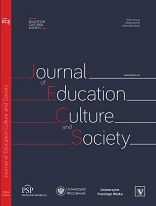Employment in Late Adulthood: Psychological Arguments
Employment in Late Adulthood: Psychological Arguments
Pro’s and Con’s
Author(s): Tetiana B. PartykoSubject(s): Social Sciences, Psychology
Published by: Fundacja Pro Scientia Publica
Keywords: employment;psychological well-being;self-attitude;emotions;late adulthood
Summary/Abstract: The research participants were people aged 60-79. The research shows that higher employment status contributes to their psychological well-being, primarily to positive interaction with others and their ability to master the environment. The research has proved that higher education and confidence in financial well-being of employed people reduce the intensity of asthenic emotions, while in those unemployed it increases the intensity of asthenic emotions. The employed are more self-confident; their self-confidence contributes to their psychological well-being. Self-confidence of the unemployed people, while enhancing psychological well-being, increases sthenic emotions. It is shown that reticence as self-attitude modality plays a greater role in the personality structure of the elderly people who are unemployed. The conclusions are made on weak and strong points of employment in late adulthood.
Journal: The Journal of Education, Culture, and Society
- Issue Year: 7/2016
- Issue No: 1
- Page Range: 115-124
- Page Count: 10
- Language: English

